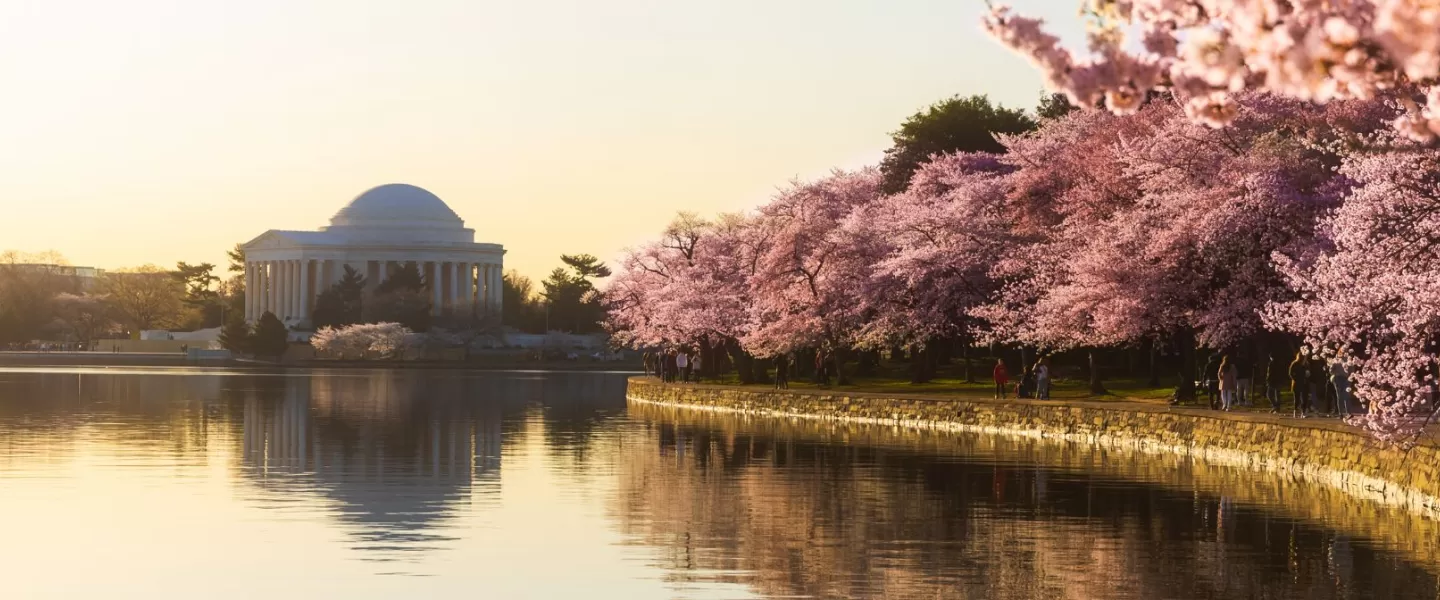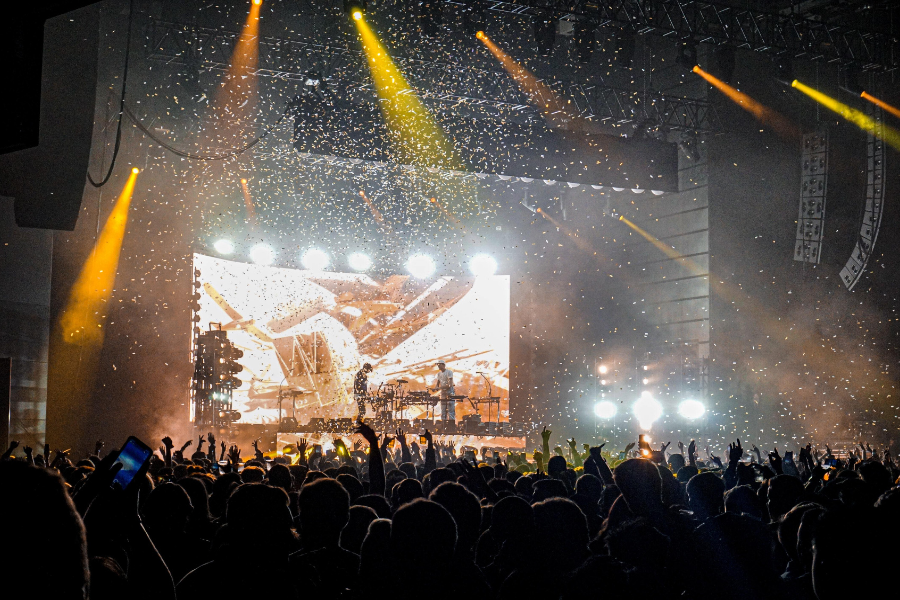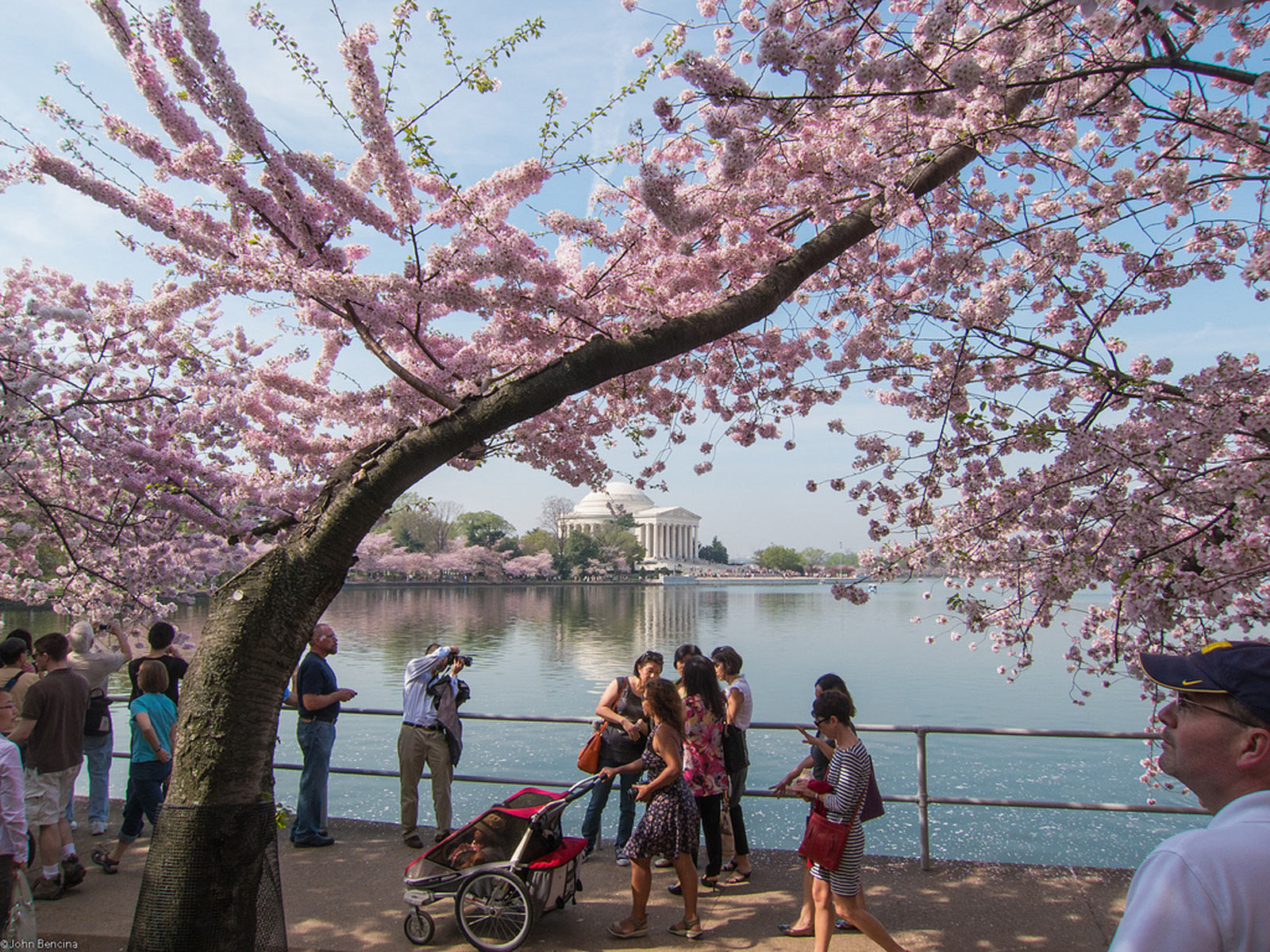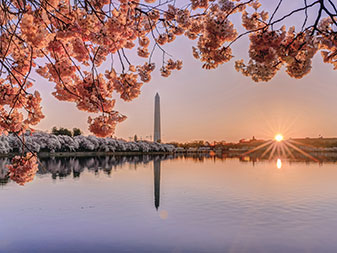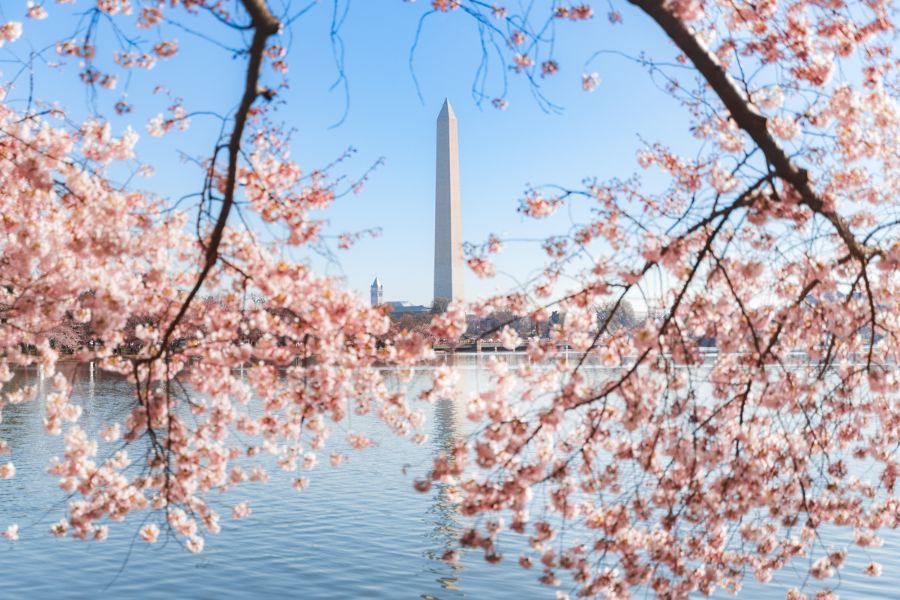
Everything you need to know about DC’s cherry blossom trees and the National Cherry Blossom Festival can be found right here.

Nothing signifies the arrival of spring in the nation's capital quite like the blooming of the cherry blossom trees and the National Cherry Blossom Festival (March 20 to April 12) to celebrate the occasion. Visitors descend upon Washington, DC each year to admire the 3,000-plus trees. The Festival is full of events that honor American and Japanese cultures and represents a close bond forged between the two countries that began with Tokyo Mayor Yukio Ozaki’s gift of the trees back in 1912.
Speaking of trees: you can assist in the effort to preserve and protect DC's iconic cherry trees through the Trust for the National Mall's Adopt a Cherry Tree campaign.
The National Park Service provide a peak bloom prediction each year; that prediction will be shared here once announced.
The National Cherry Blossom Festival offers an array of celebratory events that feature local businesses and provide a riveting showcase for Japanese culture.
For those who wish to celebrate from afar, enthusiasts can see the cherry blossoms via the live BloomCam.
Tell me more about DC's cherry blossoms and peak bloom
Peak bloom is the magical period when visitors can see the cherry blossoms in full bloom. The peak bloom dates are defined as the days when 70 percent of the trees surrounding the Tidal Basin have opened their buds, creating an unforgettable sea of pink and white. The National Park Service (NPS) is responsible for measuring the growth of the buds of the trees and provides a prediction of when peak bloom will arrive each year.
On average, peak bloom occurs between the last week of March and the first week of April, but the date changes year-to-year. For instance, 2024’s peak bloom occurred on March 17 due to early warm weather, while 2018's bloom did not happen until April 5 due to a cold winter. The blooming period, when 20 percent of the blossoms are open before the petals and leaves fall, can last up to 14 days, depending on weather conditions. Just remember that "forecasting peak bloom is almost impossible more than 10 days in advance," according to NPS. The best viewing of the cherry blossom trees typically lasts four to seven days after peak bloom begins, but the blossoms can last for up to two weeks under ideal conditions.
For more tips to help plan your visit, make sure to check out our list of things you need to know about the National Cherry Blossom Festival.
Please do your part in helping to protect the National Mall and the cherry blossoms. We kindly remind you to enjoy the blossoms, but never pick them (it’s against the law).
More about the National Cherry Blossom Festival
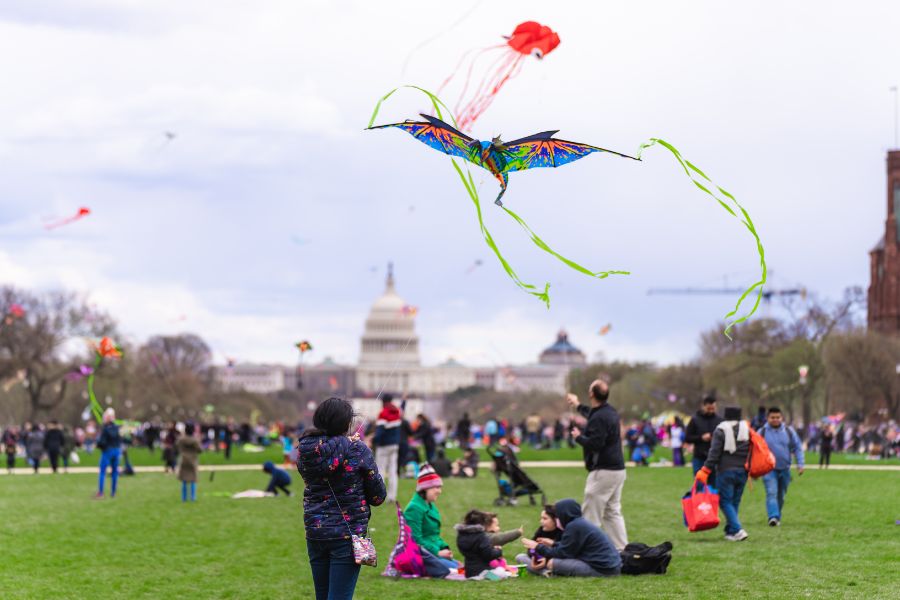
The National Cherry Blossom Festival® isn't just a celebration of the blossoms—it's a four-week-long cultural festival held across the city. Components of the Festival include the Opening Ceremony, the Blossom Kite Festival, Petalpalooza, the annual Parade, Sakura Matsuri: Japanese Street Festival and the annual Pink Tie Party fundraiser.
How do I get to the cherry blossom trees surrounding the Tidal Basin?
Use the Blue, Orange or Silver lines on the Metro and make sure to exit at the Smithsonian Metro stop. From there, it’s a 20-25 minute walk to the Tidal Basin Welcome Area & ANA Stage, located at Independence Avenue & West Basin Drive SW. Via Metrobus, the 32 route will drop you at the National Mall, near the Washington Monument. A 15-20-minute walk south will bring you to the Welcome Area.
For more information about getting to the blossoms, check out our guide to reaching the most-popular cherry blossom spots in DC, as well as less-populated areas for blossom revelry.
Where can I stay during the National Cherry Blossom Festival?

Celebrate springtime by checking out National Cherry Blossom Festival partner hotels.
In addition, many DC-area hotels offer spring-themed packages throughout the season.
Fun facts about Washington, DC’s cherry blossoms
- The first donation of 2,000 trees, received in 1910, was burned on orders from President William Howard Taft. Insects and disease had infested the gift, but after hearing about the plight of the first batch, the Japanese mayor sent another 3,020 trees to DC two years later.
- First Lady Helen Herron Taft planted the first tree in West Potomac Park. Many First Ladies, including Mamie Eisenhower, Lady Bird Johnson, Hillary Clinton and Laura Bush, have officially commemorated the blossoms. On March 27, 2012, Michelle Obama took up the cause by planting a cherry tree to mark the centennial of the blossoms.
- One of the earliest recorded peak blooms occurred on March 15, 1990, while the latest recorded peak bloom occurred on April 18, 1958.
- The majority of the cherry blossom trees around the Tidal Basin are of the Yoshino variety. But another species, the Kwanzan, usually blooms two weeks after the Yoshino trees, giving visitors a second chance to catch the blossoms.

